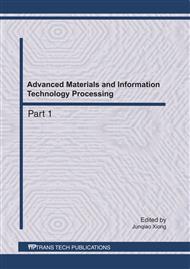p.622
p.629
p.633
p.639
p.645
p.651
p.657
p.663
p.669
Analysis on Effectiveness of Intelligent Transport Systems on National Highways
Abstract:
Intelligent transport systems(ITS) designed for solving traffic problems have actively been promoted in recent years. ITS is aimed at maximizing the use of existing transportation facilities by providing users with traffic information, and much effort is currently putting into the safety of users. However, there have been many difficulties in analyzing feasibility of ITS project since there was no methodology to calculate the effectiveness due to ITS construction. On this, a study on the methodology for effect analysis of ITS project is required. In this study, the method to quantify the effectiveness scale was suggested by selecting travel time saving, CO2 reduction, fuel savings and VMS information provision as benefit items for effect analysis on the national highway ITS project. As a result of analysis on the economic feasibility, it turned out that B/C ratio is 1.20, IRR 12.4% and NPV 1.48 billion won, which shows that the ITS construction project has economic feasibility.
Info:
Periodical:
Pages:
645-650
Citation:
Online since:
July 2011
Authors:
Price:
Сopyright:
© 2011 Trans Tech Publications Ltd. All Rights Reserved
Share:
Citation:


